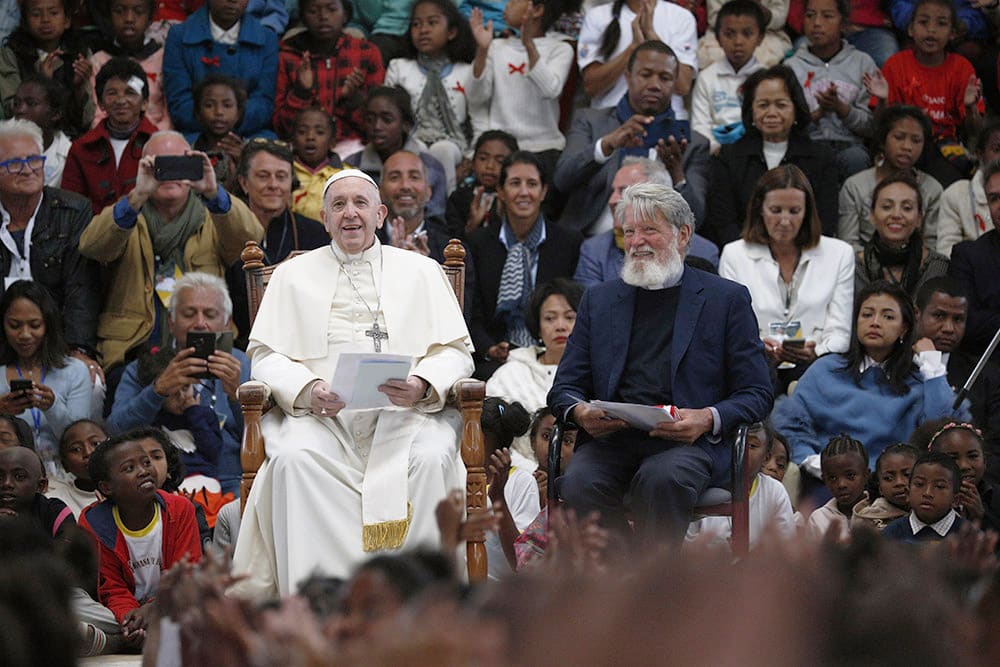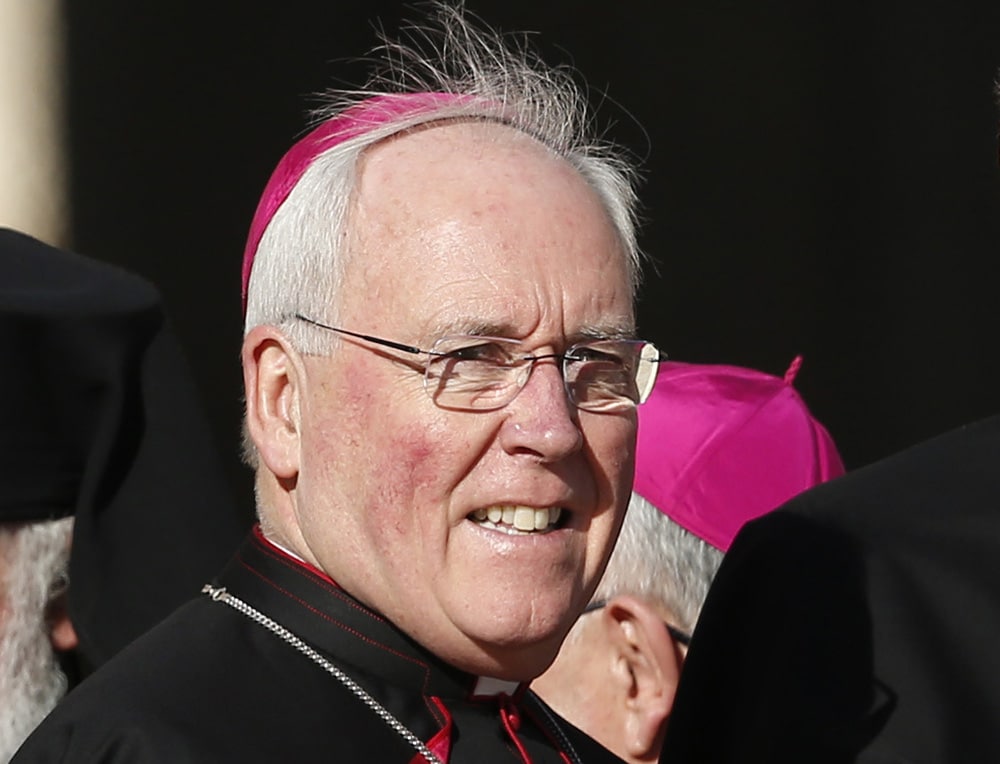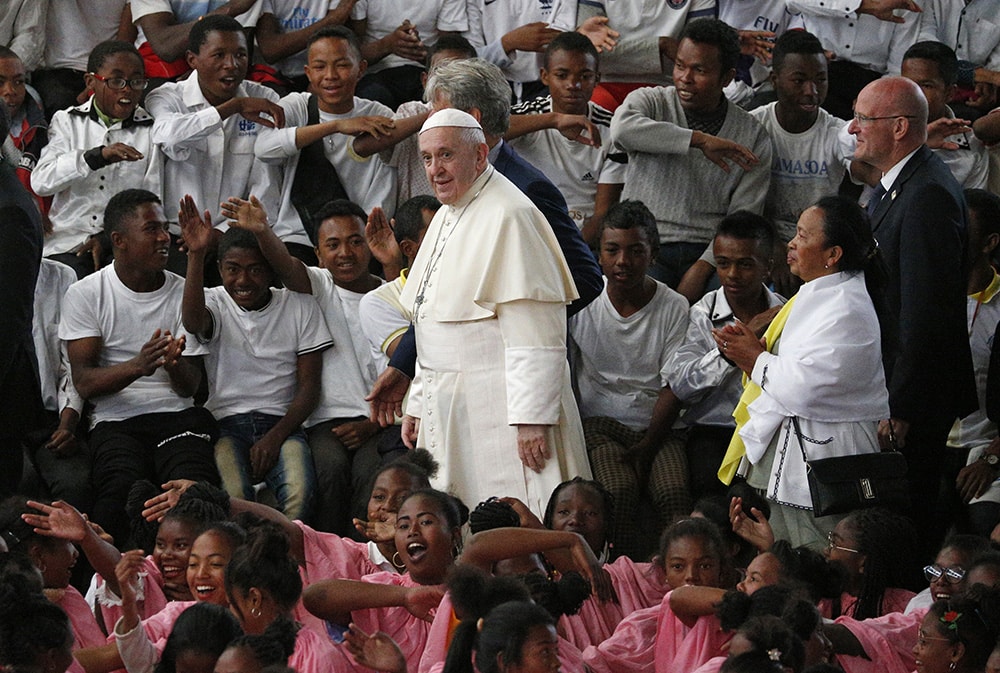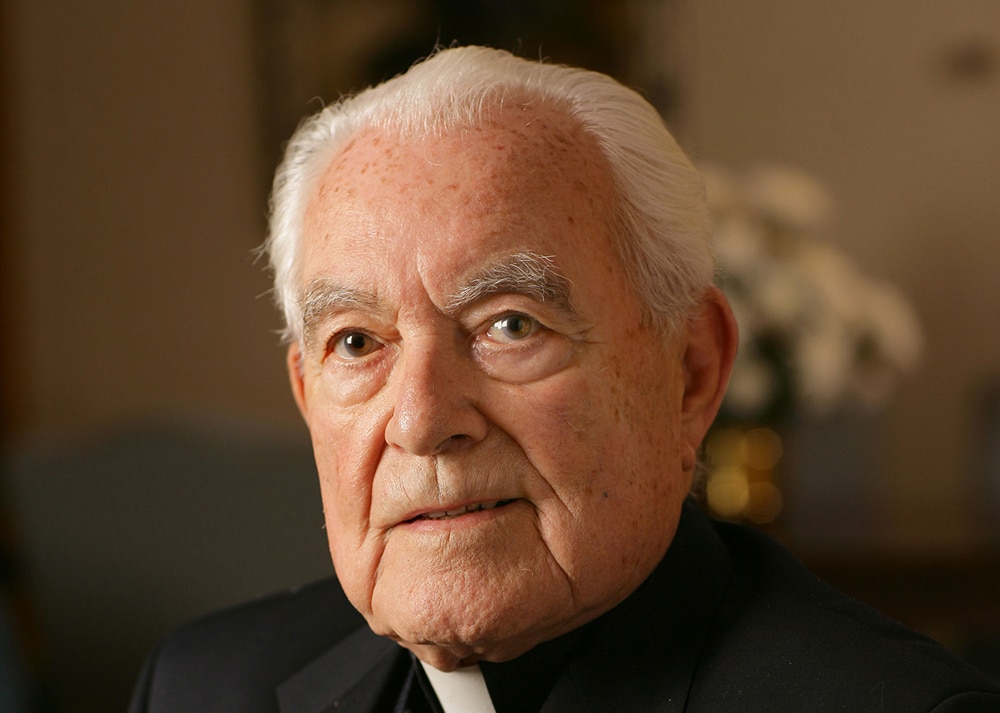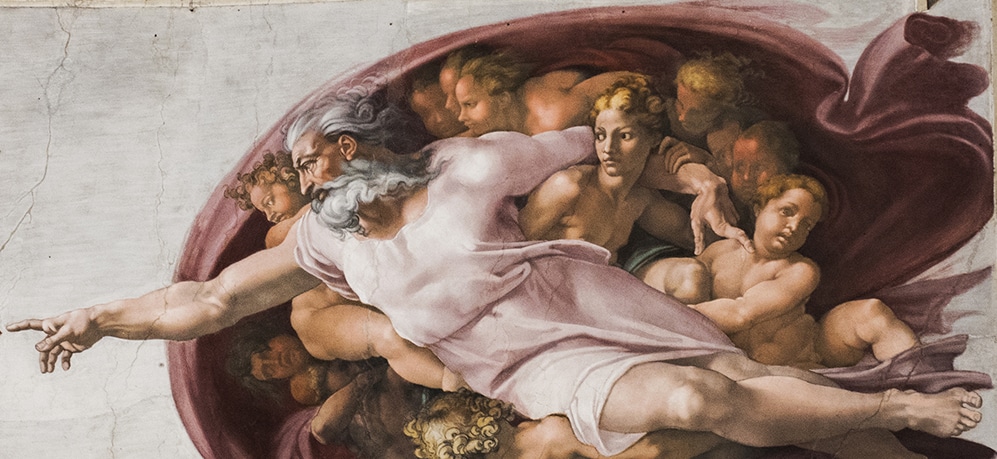 We know by now the great heart Pope Francis has for the peripheries, and this is never more on display than when he is within these peripheries, visiting with and ministering to those who, through no fault of their own, find themselves on “the edges” of society.
We know by now the great heart Pope Francis has for the peripheries, and this is never more on display than when he is within these peripheries, visiting with and ministering to those who, through no fault of their own, find themselves on “the edges” of society.
This was the case during his six-day journey to South Africa, where he met the people of the peripheries with an open heart, and they welcomed him in return with open arms. During his apostolic visit, Pope Francis traveled to Mozambique, Madagascar and the tiny island of Mauritius — what you might call the peripheries of the peripheries. His love for the people was evident wherever he went, but perhaps nowhere more so than during his visit to the Akamasoa Association, more informally called the “city of friendship” in Madagascar’s capital of Antananarivo.
Founded in 1989 by Argentine Father Pédro Opeka (who Pope Francis taught for a year back in their homeland), the Akamasoa Association is comprised of 18 villages that house more than 25,000 people and where they can obtain goods and services. According to Vatican News, “500,000 Malagasies have benefitted from emergency help in the form of food, clothing and health care.” And did I mention the association is sitting on top of what used to be a garbage dump?
Pope Francis received a personal invitation from Father Opeka to visit Akamasoa during a trip to the Vatican last year. I doubt the good padre thought the Holy Father would actually come. But Pope Francis continues to be a pope of surprises, and he made a special trip Sept. 8 to address the community.
“Seeing your happy faces, I give thanks to the Lord who has heard the cry of the poor and shown his love in tangible signs like the creation of this village,” Pope Francis said. “Your plea for help — which arose from being homeless, from seeing your children grow up malnourished, from being without work and often regarded with indifference if not disdain — has turned into a song of hope for you and for all those who see you. Every corner of these neighborhoods, every school or dispensary, is a song of hope that refutes and silences any suggestion that some things are ‘inevitable.’ Let us say it forcefully: poverty is not inevitable!”
The Akamasoa Association operates under two mottoes: “helping not assisting,” meaning the association works together with the people to help them become self-sustaining rather than just handing out aid; and “acting and not talking,” which speaks for itself. The results speak for themselves, too.
In an interview with America magazine, Father Opeka said that he was inspired to begin the community when, as a missionary in Madagascar, he saw children rummaging around a garbage heap competing with pigs and wild dogs in a search for food. He prayed to God for guidance as to how he could help them. Using borrowed funds and with the help of local families, he got to work building houses. Eventually schools, places of work and health care facilities also were constructed.
But Father Opeka is clear about the origins of the community’s success. “It is not money that has built our city of Akamasoa,” he told America. “It was love, faith, perseverance and the fraternity that we are living day by day helping each other.”
What a blessing that Pope Francis was able to shine a light on this incredible work done by Father Opeka and the Akamasoa community. It is an example of the difference one person can make when following the will of God. And it is a sign of hope and inspiration for other communities on the peripheries struggling to live from day to day.
Gretchen R. Crowe is editorial director for periodicals at OSV. Follow her on Twitter @GretchenOSV.

